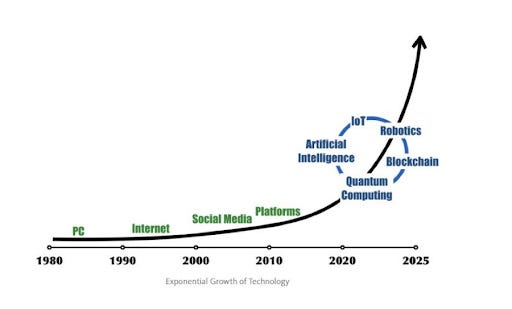AI Takes Over Finance
Algorithmic Alchemy?
AI is spreading across finance faster than anything I’ve seen before. The AI in FinTech market is projected to grow from approximately $14.7 billion in 2023 to over $50 billion by 2028, a compound annual growth rate of over 27%.
AI is also speeding up the pace of development across all other tech trees: robotics, blockchain, quantum computing, distributed computing… everything is moving faster at faster rates thanks to AI.
From the individual investor seeking to optimize their retirement fund to global enterprises unlocking unprecedented efficiencies, AI is rapidly turning data into decisions, insights into income, and potential into profit. This transformation isn't confined to a single sector; it's a growing force, democratizing sophisticated financial tools, empowering entrepreneurs, and giving rise to an entirely new intelligent infrastructure that promises to redefine the very fabric of economic activity.
We’ll explore this Cognitive Layer in a moment, first let’s look at how AI is …



